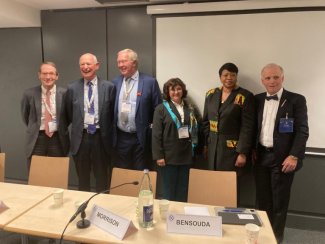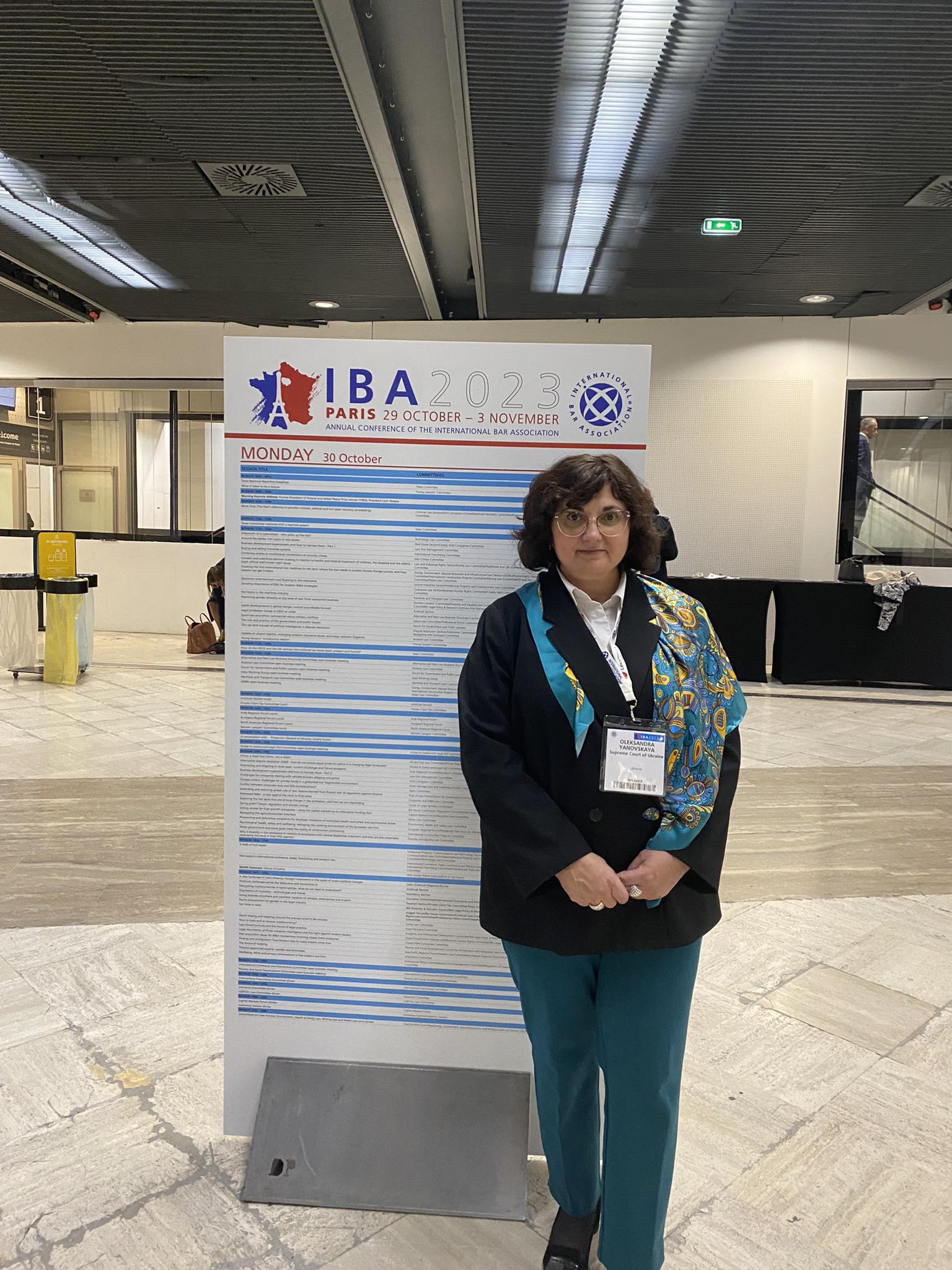Contact center of the Ukrainian Judiciary 044 207-35-46

Oleksandra Yanovska, Judge of the Criminal Cassation Court of the Supreme Court, took part in a panel discussion on "Fair Trials in Wars" held at the annual conference of the International Bar Association (IBA).
The speaker described the state of the Ukrainian judiciary in the context of a full-scale invasion. In particular, she drew attention to the fact that about 20% of courts have temporarily suspended their work due to the hostilities and the occupation of a number of settlements. In addition, 120 court buildings have been damaged or destroyed by enemy shelling, and the operation of courts in the territory controlled by Ukraine has been hampered by power cuts caused by attacks on the country's energy system and a shortage of staff, including judges who have been transferred to courts in safer areas.
All these factors combine to complicate the work of the Ukrainian judicial system as a whole and place a heavy burden on judges.
At the same time, Oleksandra Yanovska noted that the priority task remains to ensure the fairness of judicial decisions, which is a basic right of every person and is guaranteed by Article 6 of the Convention for the Protection of Human Rights and Fundamental Freedoms. This principle also extends to individuals accused of war crimes, as the equity of trials and resulting sentences will ascertain the acceptability of pertinent judgments as legitimate and equitable by the international community. In the future, these decisions may form the basis for bringing the top military and political leadership of the Russian Federation to justice.

"Our primary objective is to safeguard the rights and interests of the entire civilized world. We aim to hold accountable the highest ranks of the aggressor nation, not just for punishment, but as a means to establish a precedent that will deter future acts of aggression," stated the judge.
The speaker provided information to the audience regarding the administration of justice in Ukraine, focusing on the special procedure of criminal proceedings in the absence of the accused (in absentia).
Oleksandra Yanovska believes that in order to consider criminal proceedings for war crimes in Ukraine, it would be beneficial to have specialised judges in general courts and to provide them with the relevant training and education.
Other participants of the discussion were Dr. Mark Ellis, Executive Director of the International Bar Association (IBA), Sir Howard Morrison, former judge of the International Criminal Court, Fatou Bensouda, former Prosecutor of the International Criminal Court, Eric Møse, Chairman of the UN Independent International Commission of Inquiry on Ukraine, and Steven Kay, international criminal lawyer.
